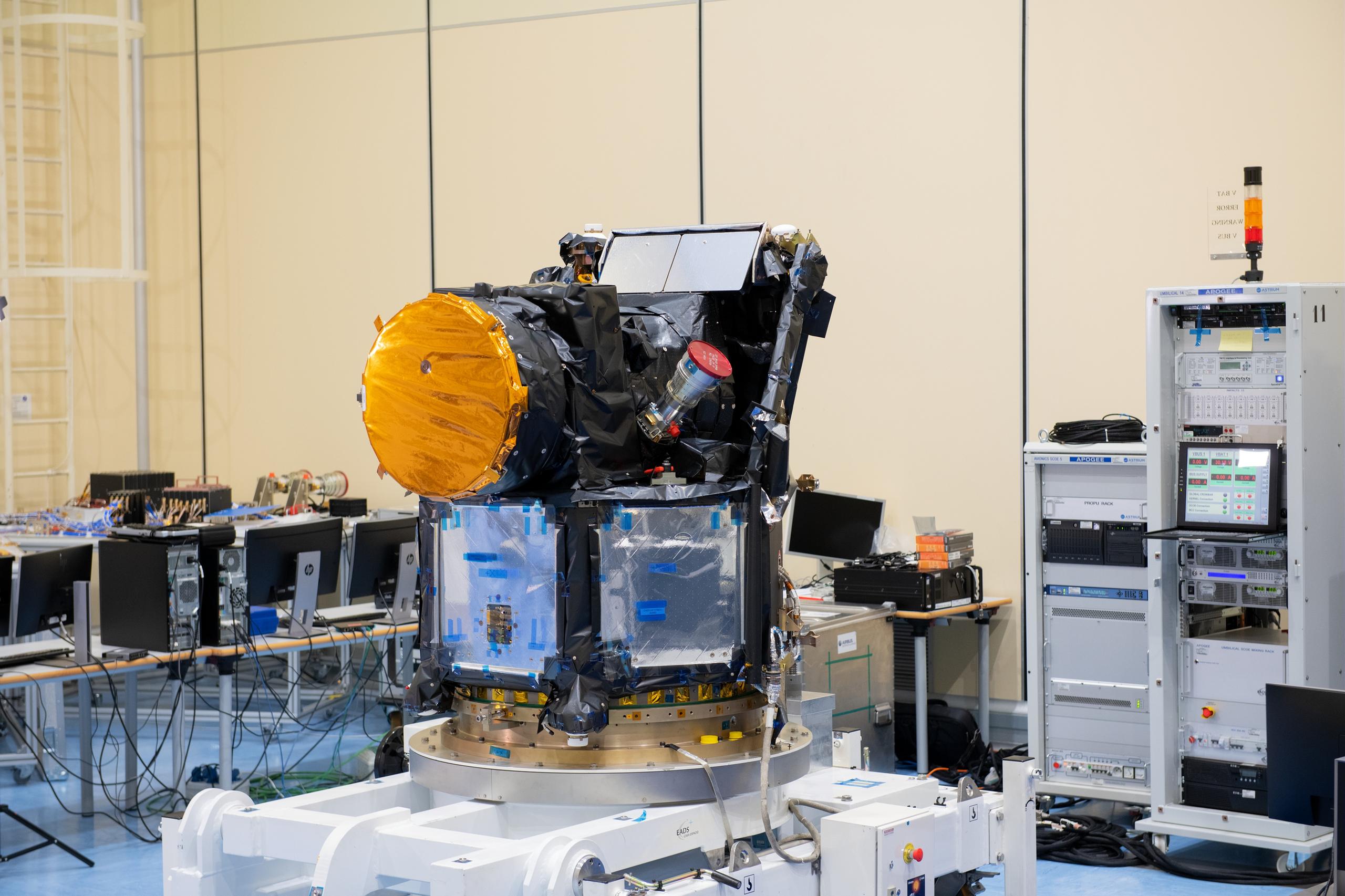
Swiss exoplanet telescope cleared for orbit

A space telescope developed by Swiss researchers to observe distant planets has passed all tests and is ready to be launched into orbit end of the year.
The telescope will travel on board the satellite CHEOPSExternal link (CHaracterizing ExOPlanets Satellite) as part of joint mission with the European Space agency. It passed the final last test carried out by Arianspace, said the university on Monday. The launch is scheduled for the fourth quarter aboard a Soyuz rocket on the Kourou launch pad in French Guiana.
“After six years of intensive work, we are delighted to see the time of departure approaching, even if take-off is still a delicate and stressful time,” said Willy Benz, head of the CHEOPS mission at the University of Bern.
Swiss firms Ruag Space and Thales Alenia also contributed to the project. CHEOPS will be placed in orbit 700 km from Earth. However, its main mission is not to discover new exoplanets. Instead the satellite will observe and characterise the planets of some 500 particularly bright stars for at least three years.
The distant planets’ atmosphere and the relationship between their mass and shape will be analysed to determine whether they are composed of rock, ice or gas.

More
A Swiss satellite in space

In compliance with the JTI standards
More: SWI swissinfo.ch certified by the Journalism Trust Initiative






























You can find an overview of ongoing debates with our journalists here . Please join us!
If you want to start a conversation about a topic raised in this article or want to report factual errors, email us at english@swissinfo.ch.